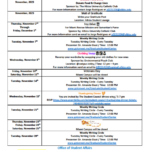Imagine your body on a float, relaxing in our pool and taking in our sun’s rays as we can here in South Florida. Not a single thing in our radar, we are pretty content with what’s going on. However, floating next to us is a colorful pool ball, and today it doesn’t feel so good to have it in our radar. Some days, the pool ball is fine on its own and left alone; we won’t mess with it, we can acknowledge it and move on. But other times, like today, we don’t know what to do with the ball and how it makes us feel. So, today we decide to push the pool ball under the surface with success! No longer a bother… until our arms get tired, and the ball floats right back up. We get more flustered, as we can’t deal with this ball staying in our way. We want to get rid of it, and the forecast is starting to pick up on this. What felt like a comfortable, relaxing, bright day turned to a gloomy, pessimistic day as we didn’t get to relax, we still have this problem next to us, and it doesn’t seem like the weather is giving up anytime soon. Who knows what the rest of the week would look like now…?
This feeling described, suppressing emotions and problems, is what many of us tend to do when we greet the outside world, at our jobs, with friends and family, and sometimes even to ourselves. One of the biggest emotions we tend to hide “under water” is our feelings of sadness, maybe because of culture, family, or what society tells us.
In the case of depression, a common condition here in our country but also globally, symptoms reach across age, gender, and some say species (think of our furry companions). And that’s where the biggest difference between our feelings of sadness and depression split: sadness can come and go, where depression interferes with everyday living and normal performance.
What we’re talking about here isn’t the classic “I’m not motivated right now” feeling, but rather a constant state of feeling this way more times than not. There’s the constant struggle of wanting to keep an air-filled pool ball under the surface, because we can’t “just get rid of it”; there’s some strong, biological ties depression can have with our bodies. It becomes a mood disorder we know of impacting our health and closest loved ones (physically, emotionally, intellectually, socially, and spiritually). Even within our circle of people we see on a daily basis (from patients to loved ones to strangers), we can see the effect.
It’s important to know where to look for in a sea of information- being able to understand when we hit a serious low, a depressive-episode, or dealing with clinical depression. The DSM-5 described it as two weeks (or more) of a depressed mood. What this includes is a set of symptoms around sleep, eating, energy, concentration, and esteem are described, but also losing interests in the things we love to do.
This, to most of us, shows up commonly (as mental health goes beyond a profession, and really goes into our personal lives) look like you are missing something here. About two-thirds of people who are dealing with their depression try to keep it under the surface and don’t seek the help or support to release themselves. Sometimes, keeping the ball under the surface affects us for months before talking to a health professional on any of the internal feelings
going on. Depression can even keep someone holding their symptoms “under water” for years that lead to physical health symptoms and even thoughts of suicide. Even as a depression spell is resolved, it can reappear. So, what can we do?
As a mental health student and intern, I am glad to say we are reaching more and more to a point where talking about depression and is no longer kept under the surface. We are expressing to each other about this problem and how getting help is possible.
What is one of the most effective ways to empower ourselves, or those around us that deal with depression? Discuss how common it is to begin with. SAMHSA reported 17.3 million adults here in our country have a depressive episode in 2017, with women being affected disproportionately than men. It’s also no shock that the WHO reported depression is hurting the workforce and being the leading cause of disability. There is relief in letting go and knowing we are not alone.
Experiencing a low mood or low sense of pleasure for two weeks is a red flag to someone facing a possible depressive episode. The group of signs and symptoms commonly seen are ways you can raise awareness in how depression can manifest, for yourself or for fellow loved ones and family members. For example, many women reported suffering a depressive episode and ruminating more, which involve negative self-talk, sudden crying, guilt, blaming themselves, and obsessive-compulsive behaviors. Men reported feelings of higher irritability, anger, boredom, recklessness (like dangerous behaviors/substance use), and escapist behaviors -like staying overtime at work.
Depression is something that reaches beyond gender, age, race, class, social status, and so on. In celebration of breaking the stigma of silence, October is National Depression Screening month. So, it’s important to do a self-check inventory with yourself on a daily basis, maybe 3 times out of the week, and set some time to fully realize your body or share this information with someone you may be displaying possible signs of depression:
As yourself the following questions:
– Are you holding any guilt, stress, or sadness in any parts of your body? Some feel weight on their shoulders, head, or chest at their deepest point in depression. Others feel the blanket is like 20-pound concrete and keeps them stuck in bed.
– Is there any part of my routine I usually do that has stopped? This can be your sleep routine, eating routines, or activities that you like to do that haven’t been done in a while. By being able to check what you’ve been doing, and avoided doing, you slowly recognize what areas require more of your focus. Be patient with yourself too, jumping straight into activities without addressing how you feel can be more harm than good. Finding that balance continues to be something that’s personal, and requires some genuine input in how you see yourself.
– Am I having problems concentrating on anything that needs my attention? Think of things you have to read or watch for work, school, or fun. Have you noticed any problems in these vital areas of life?
– Do I move slower, or talk slower, that I normally do? This can be a physical sign that depression has affected your abilities in a physical sense.
– Do I need emotional support, understanding, patience, or encouragement in any areas of my life? A good acronym for me to check-in with myself is P.I.E.S.: physically, intellectually, emotionally, spiritually/socially.
– Do I need to reach out to anyone, maybe friends or families, and do something with them? With time and treatment, depression does lift, and those dealing with can return to a sense of being able to manage for the time. It’s important to spend time and do activities that encourage you, like exercise, thinking positively about yourself, meditation, and discussion medications with your doctor.
Björn Sveinsson is a master-level mental health counseling and school counseling student at Albizu University, Miami Campus. He is a Student Vocal Member for the Albizu’s student council to empower student engagement, has presented research work on obsessive-compulsive-related behaviors, and continues working in substance-use, domestic violence, and trauma-related populations.
Resources for Depression
– For emergencies: Call 911
– Never ignore comments about suicide; National Suicide Prevention Lifeline 1-800-273-TALK (8255)
– For treatment referral/Info for mental health/substance use disorders: SAMHSA’s National Helpline 1-800-662-HELP (4357)
– For LGBTQIA+ Youth: Trevor Project Lifeline 1-866-488-7386
– For help with bullying, self-harm, abuse, emotional, and mental crisis: Crisis Text Line Text HOME to 741741 to connect with a Crisis Counselor – Additional Mental Health Resources (CDC)











